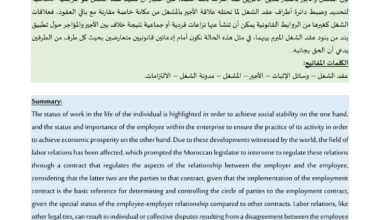تحديات الذكاء الاصطناعي للقانون

Challenges of Artificial Intelligence for the Law
Artificial intelligence (AI) has revolutionized numerous sectors, from healthcare and finance to transportation and governance. However, it also poses unprecedented challenges for the legal system. Traditional legal frameworks are designed for human actors and clearly defined corporate entities, but AI introduces complex questions about liability, accountability, and regulation. This article explores the major legal challenges posed by AI, examines international approaches, and highlights the need for adaptive legal frameworks to address emerging issues.
Defining Legal Responsibility in the Age of AI
One of the primary challenges of AI for law is defining who is legally responsible for AI-driven actions. When an autonomous system causes harm, traditional legal principles struggle to assign liability. Should the responsibility fall on the developer, the owner, the user, or the AI itself? Current legal systems largely reject the idea of granting AI legal personality, meaning liability typically remains with human actors. This raises questions about fairness, enforceability, and how to handle complex multi-actor scenarios involving AI.
Regulatory Challenges
AI technologies evolve faster than legal frameworks can adapt. Governments face the challenge of creating regulations that ensure safety, transparency, and ethical use of AI without stifling innovation. For instance, AI algorithms may be used in healthcare for diagnostic decisions, but errors can have life-or-death consequences. Regulators must balance encouraging technological advancement with protecting public interest. International disparities in AI regulation also complicate cross-border operations, creating potential legal conflicts.
Ethical and Moral Challenges
AI introduces ethical dilemmas that intersect with law. Decisions made by AI systems may reflect biases present in training data, resulting in discrimination or inequality. Laws against discrimination may be insufficient if AI decisions are opaque or unexplainable. Furthermore, AI may make decisions in contexts where human judgment traditionally plays a moral role, such as autonomous vehicles deciding how to act in accident scenarios. Legal systems must consider how to integrate ethical accountability into AI governance.
Intellectual Property and AI
Another challenge arises in the domain of intellectual property (IP). AI can create content, inventions, and software autonomously, raising questions about authorship and ownership. Current IP laws typically recognize human creators or legal entities, but not AI systems. This generates legal uncertainty for patents, copyrights, and trademarks involving AI-generated outputs. Courts and legislators are exploring how to allocate rights and rewards fairly while encouraging innovation.
Data Privacy and Protection
AI relies heavily on large datasets, often containing personal information. Ensuring compliance with data protection laws, such as GDPR in Europe, is a major challenge. Organizations must guarantee that AI systems process data lawfully, securely, and transparently. Failure to do so can result in legal penalties and reputational damage. Additionally, AI systems may inadvertently reveal sensitive information through pattern recognition, raising further legal and ethical concerns.
Challenges in Criminal Law
AI also affects criminal law, particularly with cybercrime, automated financial fraud, and autonomous weapons systems. Prosecutors and courts must determine how to attribute intent and responsibility when actions are executed by AI. Traditional concepts such as mens rea (criminal intent) are difficult to apply to autonomous systems. Legal scholars debate whether new categories of offenses or hybrid liability models are necessary to address AI-driven crimes.
International Cooperation and Legal Harmonization
Given the global nature of AI technologies, international cooperation is critical. Divergent legal standards can create loopholes for companies operating across borders. International organizations, such as the United Nations, OECD, and European Union, are working on AI governance frameworks to harmonize laws and encourage ethical practices. Coordination between nations is essential to ensure AI is used responsibly and that legal systems remain effective in addressing emerging challenges.
Proposed Legal and Policy Solutions
Legal scholars and policymakers have proposed multiple strategies to address AI challenges:
- Adopting adaptive and flexible legal frameworks that can evolve with technological advancements.
- Implementing mandatory AI audits and explainability requirements for high-risk systems.
- Assigning clear liability models that balance human responsibility with AI autonomy.
- Integrating ethical guidelines into legislation, emphasizing fairness, transparency, and accountability.
- Promoting international cooperation to harmonize regulations and prevent regulatory arbitrage.
يمكنك قراءة الموضوع هنا مباشرة أو يمكنك تحميل مباشرة في رابط التحميل في الأسفل
تحديات-الذكاء-الاصطناعي-للقانونConclusion
Artificial intelligence poses unique and complex challenges for the law, spanning liability, regulation, ethics, intellectual property, and criminal justice. Legal systems must adapt to address the rapid evolution of AI while maintaining human-centered accountability and protecting fundamental rights. A combination of adaptive legislation, ethical governance, and international coordination will be essential to ensure that AI serves the public interest while minimizing legal uncertainties. Ultimately, addressing these challenges will define the legal landscape of the 21st century and determine the responsible integration of AI into society.
SEO Keywords:
AI and law, artificial intelligence legal challenges, AI liability, AI regulation, AI ethics, AI governance, legal frameworks for AI, AI accountability, law and technology, AI legal responsibility.







